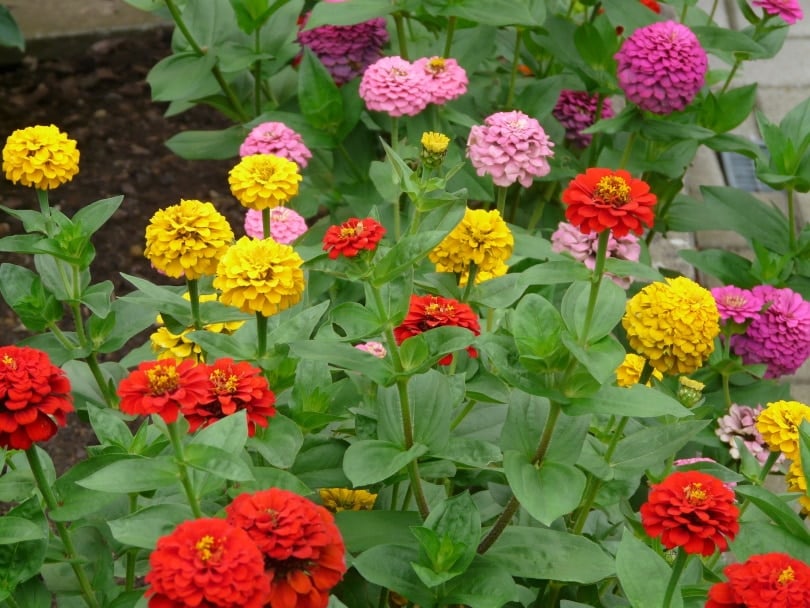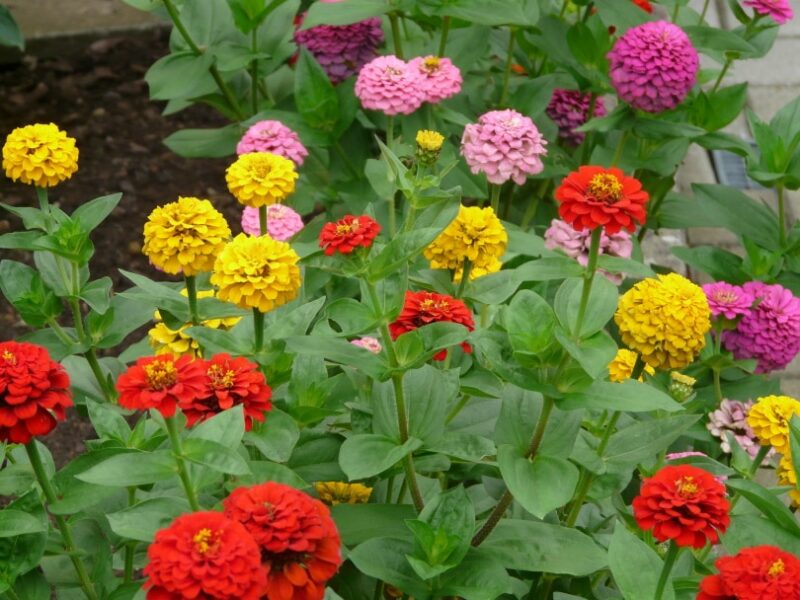It’s a beautiful sight to look out your window and see the colors of all the zinnias in your garden. But if you have a curious cat, your flowers might be on their radar for tearing at or even chewing on. It is not recommended that you allow your cat to eat your plants, however. The habit could result in your pet eating one that is toxic.
So, the question is, “Are zinnias poisonous to your cat?” Rest assured, they are not. Zinnias are safe plants for your feline. If your cat does make a snack out of them, the only victims will be the zinnias.
Toxicity in Cats
Since cats are curious creatures, it is not unusual for them to eat something toxic, like a plant. If your cat has ingested something that may be poisonous, here are potential signs of toxicity.
- Lack of appetite and drooling
- Vomiting and diarrhea
- Lack of coordination, tremors, lethargy, seizures, or coma
- Acting overly excited or hiding
- Coughing, difficulty breathing, or sneezing
- Inflammation, swelling, or redness of the skin
- Liver failure: Vomiting, dehydration, jaundice, diarrhea, weight loss, and lack of appetite
- Kidney failure: Bad breath, vomiting, lack of appetite, decreased urination and drinking, and weight loss
However, many of these signs can be caused by more common illnesses and do not necessarily point to poisoning.
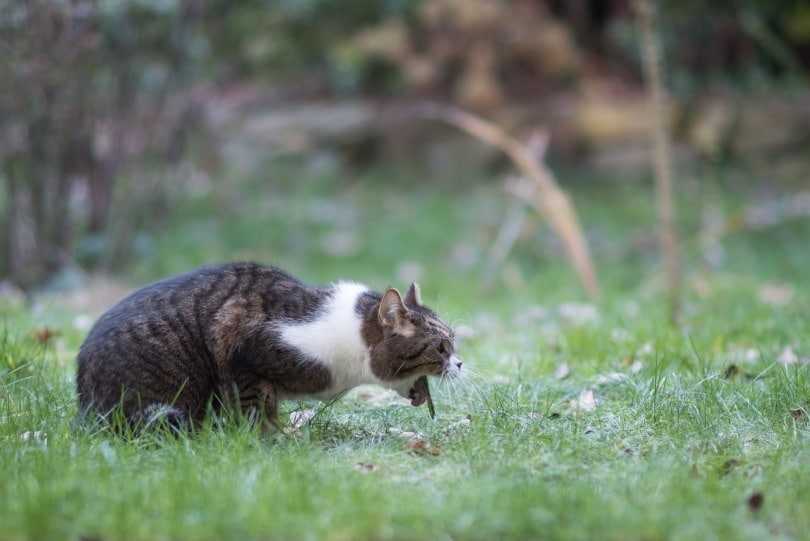
Safe Plants Can Still Be Hazardous
Allowing your cat to nibble on flowers or plants considered safe can still be harmful. For example, the powdered substances added to the vase to keep flowers fresh may have chemicals that are harmful or toxic to cats.
The vases we put our flowers in can also bring harm to our animals. For example, cats are curious and may try to drink the water from the vase. If your cat smashes the vase and walks on the glass, they can get a serious cut.
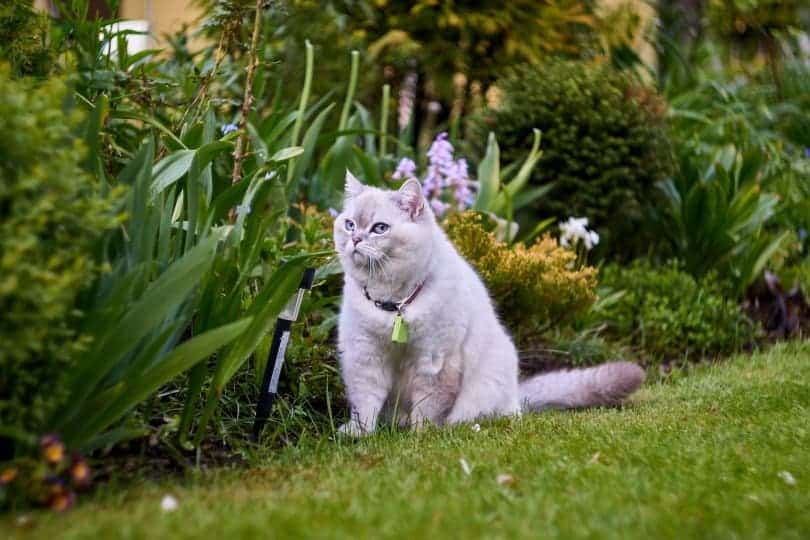
Allergies
Does your cat have any allergies? There is always a chance that your cat may be allergic to plants that are considered safe. Pollen can contact the skin or be inhaled by your cat. Cats can then experience skin and respiratory issues. If your cat is exhibiting any signs, call your vet. Here are signs that your feline may have a pollen allergy.
- Excessively rubbing their face on objects
- Scratching, licking, and grooming excessively
- Itchy and scabby skin
- Thinning hair
- Hair loss
- Lip ulcers
- Red or patchy skin
- Rashes
- Scabs on neck and rear
- Infected or crusty skin
- Eye or nasal discharge
- Excessive ear wax
- Sneezing
- Wheezing
Your cat may only exhibit a few of these signs or all of them. Your vet will determine any course of treatment for allergies in your cat. Removing the allergen, if possible, is recommended.
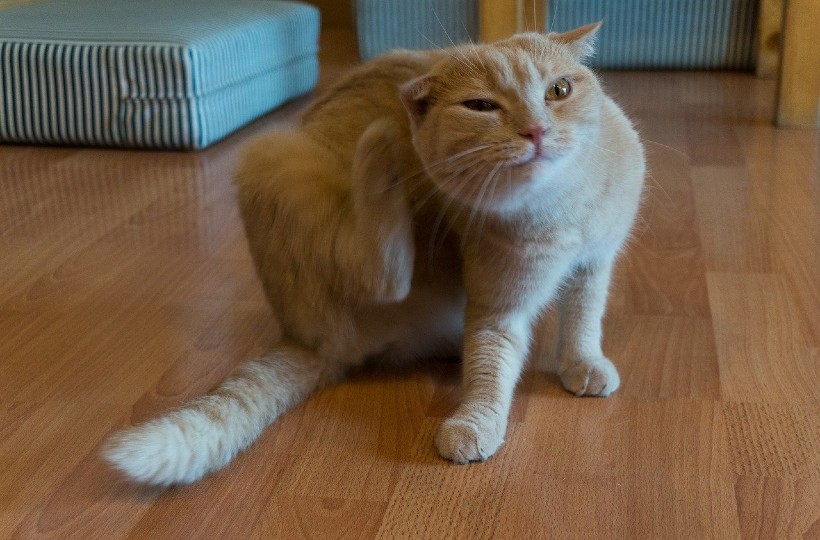
Conclusion
Planting flowers or plants can make your environment look pleasing and provide mental stimulation for your cat. You can enjoy the scenery and keep your pets safe. Like zinnias, there are other flowers we can plant that are not toxic to our pets and can give us months or years of pleasure. Since there are other issues like allergies to consider, though, cats should not be allowed to play with your plants.
Featured Image Credit By: Piqsels

